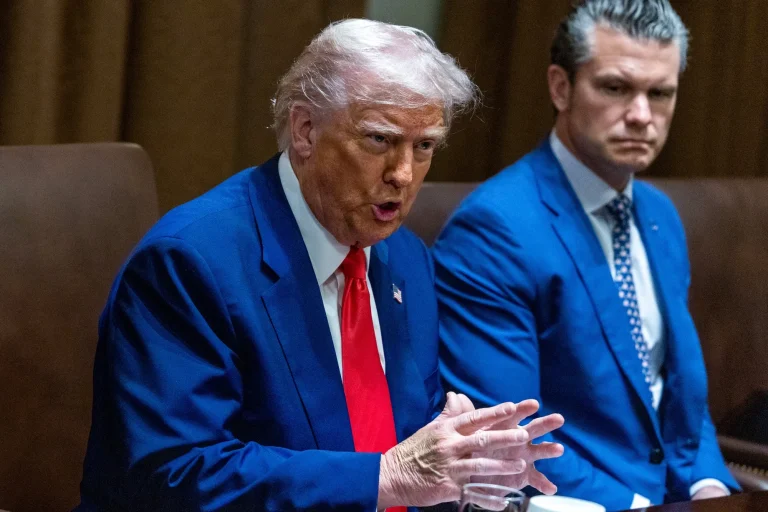The release of previously confidential files related to convicted financier Jeffrey Epstein has renewed scrutiny on a wide range of political figures, raising questions about who had interactions with Epstein and what knowledge may have been held regarding his criminal activities. The files, set to become public following congressional action, are expected to provide unprecedented insight into Epstein’s extensive social and political network, which has spanned multiple decades and included business leaders, celebrities, and elected officials.
The move to make the documents public follows years of legal battles, congressional inquiries, and investigative reporting. Epstein, who was convicted in 2008 for soliciting a minor for prostitution, had cultivated connections that drew significant attention due to his continued influence and wealth. While Epstein died in 2019 while awaiting trial on federal sex trafficking charges, the pending disclosure of the files is seen as a pivotal moment for transparency and accountability.
The files have already begun to generate headlines, even before full disclosure, as various names emerge in association with Epstein-related events. Advocates for victims have long argued that Epstein’s network enabled his crimes, emphasizing the importance of understanding the breadth of those connections. They contend that making these documents public will allow a clearer view of how individuals and institutions may have interacted with Epstein over time.
Among the figures recently mentioned in the context of the files is Democratic House Minority Leader Hakeem Jeffries. According to media reports, one document appears to reference a professional interaction facilitated by a political consulting firm, suggesting that Epstein was invited to an event connected to Jeffries. In response, Jeffries has strongly denied ever meeting Epstein or engaging with him in any personal capacity. He stated that he has “never had a conversation with him, never met him, and knows nothing about him other than the crimes he was convicted of committing.”
The disclosure has put pressure on a number of politicians to clarify any connections with Epstein, however minor or professional. For some, even a tangential link has generated intense media scrutiny, reflecting the broader public concern regarding the intersections of wealth, influence, and accountability. Legal experts note that the files themselves do not necessarily prove wrongdoing by any individual named, but their release is expected to prompt renewed examination of associations, fundraising activities, and interactions with Epstein and his affiliates.
Trump administration officials have commented on the timing and significance of the release. President Donald Trump, who himself has been vocal regarding Epstein and his network, emphasized that the files reveal the extensive reach of Epstein’s social influence and highlighted that many individuals who had associated with Epstein were members of the Democratic Party. Such statements have drawn responses from multiple political leaders who insist that associations inferred from the files do not constitute evidence of criminal activity.
Congressional oversight committees are preparing for the public release of the documents, with lawmakers anticipating that the files could inform future investigations or policy discussions. Oversight officials stress that while some individuals named may have had incidental or professional contact with Epstein, any investigation must be conducted carefully to distinguish between innocent interactions and those that could suggest complicity or knowledge of illegal conduct.
Victim advocacy groups have welcomed the release of the files as a crucial step toward accountability. Many argue that transparency is essential not only to understand the scope of Epstein’s network but also to prevent future abuses of power. Advocates point out that for decades, Epstein was able to maintain relationships with influential figures while continuing to commit crimes, highlighting systemic failures in oversight and enforcement.
The files are also expected to shed light on Epstein’s financial dealings, property acquisitions, and the structure of his business relationships. Experts suggest that understanding how Epstein leveraged his wealth and influence will provide a clearer picture of how he operated with such impunity. This may also reveal patterns of financial or logistical support from individuals or organizations that had connections with him.
Legal analysts caution that public reactions to the files must be tempered with care. While media coverage has often focused on high-profile names, the documents themselves are complex, spanning years of correspondence, invitations, and financial records. Not all mentions of a public figure indicate direct involvement in Epstein’s crimes. Lawyers emphasize that the release is an opportunity for transparency but also a reminder of the importance of evidence-based evaluation before drawing conclusions about any individual.
For political figures like Jeffries, the challenge lies in addressing any perceived connection while clearly stating the nature of the interaction. By proactively responding to media inquiries, clarifying that any reference in the files does not imply personal acquaintance or wrongdoing, and cooperating with oversight inquiries, public officials can manage scrutiny and uphold accountability.
The broader implications of the files extend beyond individual reputations. They are expected to highlight how systems of influence, wealth, and social access can enable criminal behavior when left unchecked. Investigators and policymakers are paying particular attention to structural factors that allowed Epstein to maintain his operations, including the role of enablers, intermediaries, and institutions that failed to act.
As anticipation builds, news outlets are preparing to analyze the files comprehensively. Journalists emphasize the need to differentiate between factual content and speculation, ensuring that reporting maintains accuracy while addressing public interest. Analysts predict that the release will dominate news cycles and potentially influence legislative discussions about financial and social oversight.
Legal scholars have noted that the files could be referenced in ongoing or future civil litigation related to Epstein’s victims. While criminal liability for some individuals may be unlikely due to statutes of limitations or lack of evidence, civil actions could provide avenues for compensation and accountability. The disclosure may also spur calls for reforms in how allegations of financial exploitation and sexual misconduct are investigated and prosecuted.
In addition to political figures, the files are expected to reference business leaders, socialites, and international figures who had professional or personal interactions with Epstein. Observers suggest that the documents could reveal patterns of influence-peddling and networking that, while not necessarily criminal, raise ethical questions about the use of wealth and power.
The release comes at a time of heightened public sensitivity regarding the intersection of money, politics, and crime. With social media amplifying the reach of each revelation, both journalists and public officials must navigate complex narratives while ensuring accurate representation of the facts. Experts warn against jumping to conclusions based solely on a name appearing in a document, emphasizing that context is critical in understanding the significance of the references.
Victims’ groups continue to advocate for a thorough and careful review of the files. They argue that understanding Epstein’s operations is not only about exposing wrongdoing but also about providing closure and validation for survivors. By tracing the networks that allowed his crimes to continue, the hope is that systemic vulnerabilities can be addressed to prevent future abuse.
In summary, the impending release of the Epstein files represents a pivotal moment in U.S. political and social discourse. It promises to offer transparency into one of the most notorious criminal networks in recent history, while simultaneously challenging public figures to clarify past interactions. Figures like Hakeem Jeffries, who have been named in professional contexts, are responding by reaffirming their lack of personal connection and denouncing Epstein’s actions.
The public, meanwhile, is preparing for a flood of new information, legal analysts are examining potential ramifications, and advocacy organizations are emphasizing the importance of accountability. The files are expected to provide both factual insight and an opportunity for reflection on broader systemic issues, including the intersection of wealth, influence, and criminality. As these documents become accessible, the coming weeks may see a mixture of media scrutiny, political debate, and calls for further oversight to ensure that the lessons of Epstein’s network are fully understood and addressed.

Emily Johnson is a critically acclaimed essayist and novelist known for her thought-provoking works centered on feminism, women’s rights, and modern relationships. Born and raised in Portland, Oregon, Emily grew up with a deep love of books, often spending her afternoons at her local library. She went on to study literature and gender studies at UCLA, where she became deeply involved in activism and began publishing essays in campus journals. Her debut essay collection, Voices Unbound, struck a chord with readers nationwide for its fearless exploration of gender dynamics, identity, and the challenges faced by women in contemporary society. Emily later transitioned into fiction, writing novels that balance compelling storytelling with social commentary. Her protagonists are often strong, multidimensional women navigating love, ambition, and the struggles of everyday life, making her a favorite among readers who crave authentic, relatable narratives. Critics praise her ability to merge personal intimacy with universal themes. Off the page, Emily is an advocate for women in publishing, leading workshops that encourage young female writers to embrace their voices. She lives in Seattle with her partner and two rescue cats, where she continues to write, teach, and inspire a new generation of storytellers.







